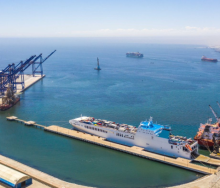InterManager, the international trade association for the ship management sector has called on the shipping industry to contribute to a new campaign to highlight the issue of criminalisation of seafarers.
Concerns about the increasingly harsh treatment of ships’ crew in some parts of the world had prompted its decision to take part in industry discussions to identify the depth of the problem and to confront seafarers’ concerns, InterManager said in a statement this week.
InterManager said it plans to collate statistics on criminalisation incidents which it will share with the International Maritime Organisation (IMO) and other shipping industry stakeholders. It has called on other shipping organisations, maritime colleagues, and seafarers to inform it of cases of criminalisation that they are aware of to ensure that the data collected is as comprehensive as possible.
InterManager Secretary General, Captain Kuba Szymanski, said cases of criminalisation were often related to drugs being discovered on vessels.
“There is a concern within the shipping industry that seafarers are being unfairly detained when authorities find something wrong with their ship, often when drugs are found onboard but also in other circumstances,” he said.
“Most frequently senior officers are detained, although the whole crew can be, and held without charge for long periods of time and often without any proper legal representation or assistance. There is growing recognition across the shipping industry that this situation needs to be addressed including at the IMO,” Szymanski said.
He said as part of the Human Element Industry Group and as an IMO NGO InterManager had stepped up to collect meaningful and useful data that can be used to inform discussions on the issue.
“Let’s see what the scale of the problem is. We’re calling on all shipping professionals and maritime colleagues to share their knowledge with us to ensure the information we compile is as comprehensive as it can be,” he said.
InterManager said it had recently began compiling the data which is starting to shed light on the situation where senior officers are most at risk of criminalisation.
So far, the association knows of 118 cases of criminalisation but suspects there are many more. Statistics collected so far reveal that in 63% of cases the ship’s Master was the one imprisoned.
Tanker crew represent the most frequent vessel type where arrests occurred (29%), followed by bulk carriers (19%), and general cargo vessels (14%).
According to data gathered between 1989 and 2024 the number of cases has increased, peaking in 2023 at 23 cases, with a further 17 in 2024. Criminalisation occurs across the globe but cases are most frequent in Asia, with a significant number occurring in Europe and the Americas.
A recent high profile case was that of Polish Captain Andrzej Lasota who spent two years in jail without trial in Mexico.
He was charged with “negligence in failing to be aware that the ship he commanded may have been carrying prohibitive substances” after 240kgs of cocaine was found buried in his ship’s coal cargo during discharge. The drugs were discovered by an alert ship’s officer and reported by the Master to the authorities after he had immediately stopped cargo work.
Armed military forces arrested the entire crew and held them for three months, while Lasota was incarcerated for longer, facing a possible 20 years for drug trafficking.
His family campaigned for his release, supported by the Cypriot and Polish Governments and maritime organisations such as InterManager. He was eventually released from a harrowing jail term of 592 days without charge, in poor health, and having lost four stones (25kg) in weight.
“No one deserves to be treated like that while just going about their daily work. This is an issue which needs to be addressed at the highest levels, and we are pleased to see the IMO taking seafarers’ concerns seriously on this matter,” Szymanski added.













